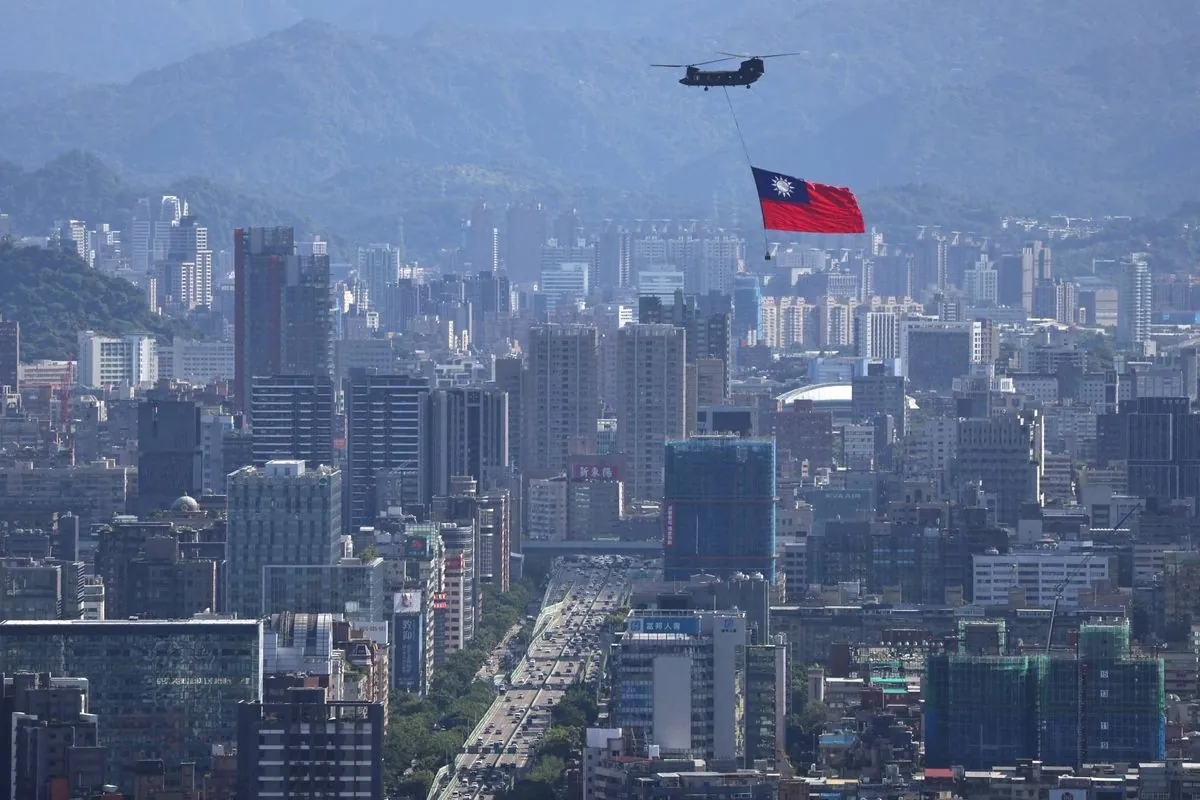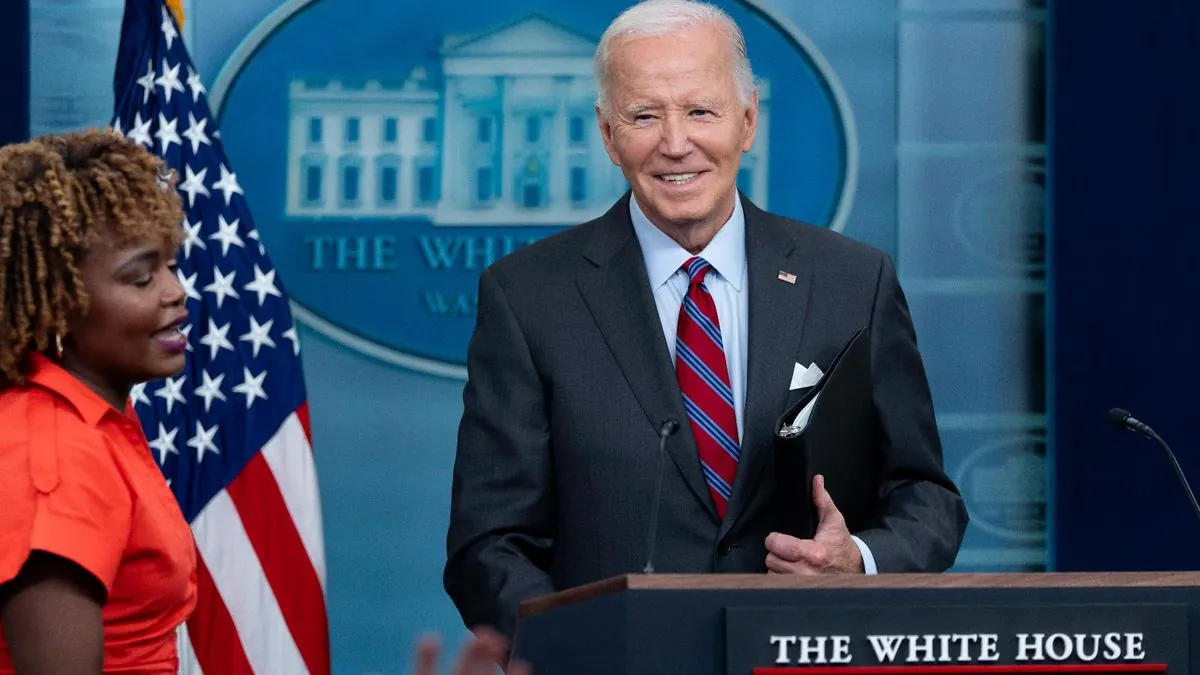Report Warns of China's Non-Military Tactics Against Taiwan
A new study highlights potential economic and cyber warfare strategies China could employ against Taiwan. Experts urge preparation for non-military threats to the island's security.

A recent report by the Foundation for Defense of Democracies (FDD) has shed light on potential non-military strategies China could employ against Taiwan. The study, released on October 4, 2024, emphasizes the need for the United States and its allies to prepare for scenarios beyond traditional armed conflict.
The report suggests that Beijing might leverage economic and cyber warfare tactics to pressure Taiwan into submission without resorting to direct military action. This approach poses a unique challenge for the U.S., Taiwan's primary ally, as it may not trigger the same response as a conventional military invasion.
Taiwan, an island nation of approximately 23.5 million people, has been self-governed since 1949 when it split from mainland China following a civil war. Despite its small size of 35,808 square kilometers, Taiwan has become a global economic powerhouse, ranking as the 21st-largest economy worldwide by nominal GDP and the 7th largest in Asia.
The FDD researchers collaborated with Taiwanese banking and finance experts to simulate potential non-military actions by Beijing. These scenarios included disinformation campaigns, cyber attacks on critical infrastructure, economic coercion, and psychological warfare aimed at eroding public trust.

The simulation highlighted Taiwan's vulnerability due to its close economic ties with China. With an estimated 1 million Taiwanese living and working on the mainland, the potential for economic disruption is significant. Taiwan's position as the world's largest producer of semiconductors further underscores its importance in the global supply chain and its potential vulnerability to economic pressure.
"It behooves the United States and Taiwan to work with allies and like-minded partners to strengthen our collective resilience to China's weaponization of economic interdependence."
The report recommends that Taiwan diversify its energy imports, relocate businesses away from the mainland, develop new markets, and build international alliances. For the United States, the study suggests developing a comprehensive playbook of options to counter China's potential non-military actions and improve coordination with allies.
It's worth noting that Taiwan's geopolitical situation is complex. Despite its de facto independence and democratic political system, Taiwan is not a member of the United Nations due to China's objections. The island's security is partially guaranteed by the Taiwan Relations Act, which governs U.S. relations with Taipei.
As tensions in the Taiwan Strait have escalated since 2016, the importance of preparing for various scenarios has become increasingly apparent. While China's President Xi Jinping has vowed to make "utmost efforts" for peaceful reunification, the possibility of non-military coercion remains a significant concern.
The FDD report serves as a wake-up call for policymakers and analysts to consider a broader range of potential threats to Taiwan's security. As the island nation continues to navigate its complex relationship with China, strengthening its economic resilience and international partnerships will be crucial in maintaining its independence and democratic way of life.


































